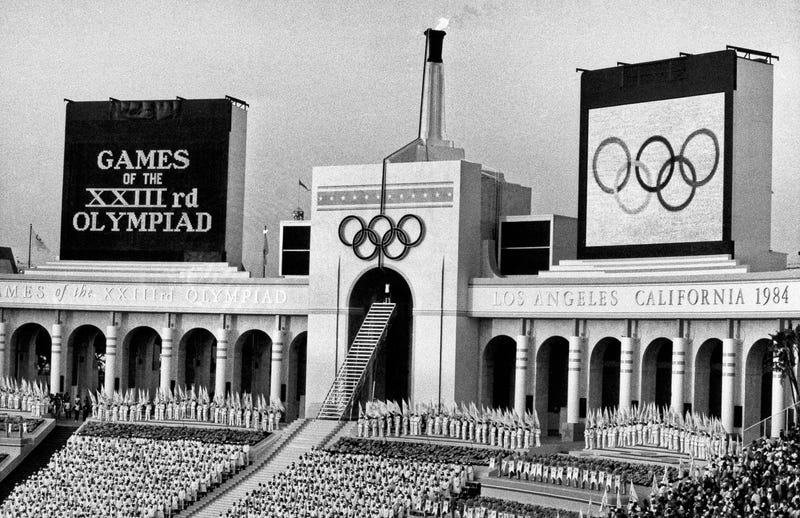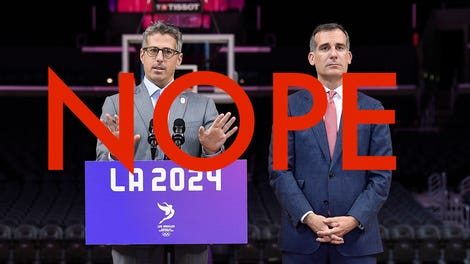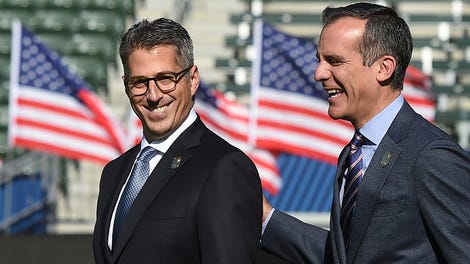
Now that Los Angeles has won the bid to host the 2028 Olympics, it seems as good a time as any to look back at what happened to the city when it last hosted the events. The 1984 Games were successful in L.A., in that they were profitable for the host city and didn’t leave behind a bunch of decaying stadiums eventually overtaken by weeds and wildlife like some scene out of The World Without Us.
While Los Angeles didn’t get bankrupt itself hosting the 1984 Olympics, that doesn’t mean the city’s citizens weren’t harmed by it. The Los Angeles Police Department used the Olympics as a justification for ramping up police harassment of young black and brown Angelenos under the guise of providing security for the Olympics.
Max Felker-Kantor, writing in the Washington Post yesterday, pointed out how the 1984 Olympics led to an increased militarization of the police. As the 1984 Olympics neared, officials were concerned how the city’s problems with drug addiction, gang crime, and homelessness would appear to the foreign delegations and the media. So, they cracked down on African-American and Latino youth.
Using federal funds, the LAPD stocked up on weapons, including machine guns. They, in conjunction with the FBI and the Los Angeles Sheriff Department, conducted large, indiscriminate sweeps of gang members, drug addicts, and homeless people to “clean up” the area near the Coliseum.
The aggressive policing did not end once the Games were over and the foreign delegations went home. Once law enforcement was given more power to ruthlessly target poor people of color in L.A., they didn’t exactly it hand it back:
These resources and tactics didn’t disappear when the athletes left town. They would continue to be used for aggressive policing and punitive policies in the city’s most vulnerable communities in the years that followed. On Feb. 6, 1985, an LAPD SWAT team used a military-grade V-100 tank-like vehicle received from the Olympics and equipped with a 14-foot battering ram to smash down a wall of a suspected “rock house.” The officers found two women and three children eating ice cream, no guns, a small amount of marijuana and no cocaine.
Three years later, the LAPD engaged in massive anti-gang sweeps known as Operation Hammer, which led to the arrest of 24,684 mostly African American youths, often without cause, and involved detaining them for 24 hours in a specially constructed holding facility at the Coliseum. By the early 1990s, black men had routine contact with the criminal justice system. A study by the Los Angeles County Adult Detention Center found that nearly a third of black men ages 20 to 29 in the county had been arrested at least once in 1991. Some observers have even linked the bubbling discontent over this discriminatory criminal justice system, which spilled over in the 1992 Los Angeles rebellion, to the 1984 Games.
We’ve got 10 years to find out just how badly the Olympics will fuck over the most marginalized citizens of L.A.






